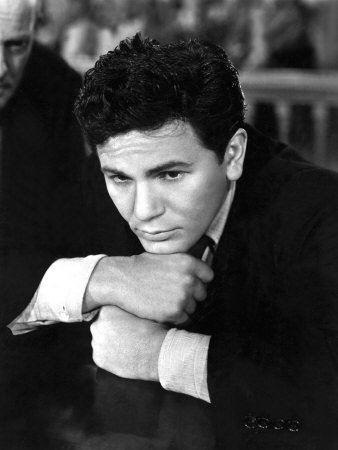Not Broke But Not Flush: “Dust Be My Destiny”
Jerome Odlum was what you might call a bit of a crusader. He was a newspaper editor in the ‘20s and ‘30s who went on to become a successful novelist and short story writer. Drawing from his newspaper background, most of his books dealt with crime and the corruption of the criminal justice system. His novel Each Dawn I Die caused such a stir that it led to major prison reforms nationwide and was subsequently turned into a popular film. Even if he was a little heavy-handed, he got his point across.
A number of his books and stories went on to become films including, in 1939, Dust Be My Destiny, which focused on the treatment tramps and hobos could expect at the hands of the Law.
Hollywood dealt with the social and political ramifications of the Depression in a number of ways. Some directors played it for laughs, not to make light of the desperate realities, but instead to try and stave off the despair for a few hours. Others, like Wild Bill Wellman, subtly (and sometimes not so much) seemed to call for anarchist rebellion. Still others—as in Gabriel Over the White House and Night Beat—dreamed of a strong fascist leader who would march us all in lockstep out of the mess.
The call in Lewis Seiler’s film version of Dust Be My Destiny is a little quieter and simpler than all that. It asks that the nation return to its founding principles, and that justice be handed down the same to everyone, no matter how much money they have or what part of the train they ride in..
Now in his seventh film, John Garfield stars as Joe Bell. As the film opens, he’s being released from prison after serving a year and a half for a robbery he didn’t commit. He and a friend hop a freight heading anywhere, Joe is understandably bitter after his experience. “Nobody gives breaks to guys like us,” he says. He’d spent much of his life on the move and hopping trains, so he knew how hoboes were treated. And sure enough a railroad bull busts him for vagrancy and sends him to a work farm. There he falls for Mabel (Priscilla Lane), who happens to be the foreman’s step daughter. After getting into a fight with the foreman, Joe and Mabel run away and get married. Moments after becoming newlyweds they become fugitives as well, after learning that the foreman died and an arrest warrant has been issued for Joe. They both know he’s innocent and Mabel encourages him to turn himself in, but he’s previous experiences tells him this would be pointless—he’d still be looking at the gallows.
All they want is to settle down, get a job, and have a nice, quiet normal life. They move from town to town and get close to this dream, but every time it seems they might finally have it together, some ghost from the past comes along and they have to take it on the heel-and-toe again.
The ironic thing is that in spite of all of Joe’s grousing about how he can’t catch a break, it seems they catch a break every step of the way. Nearly everyone they run into gives them a break—jobs, rides, food, money. Even the old lady Joe’s about to rob offers him a sandwich because she can tell he’s hungry. His only real beef, though he doesn’t recognize it, is with the courts.
Finally, inevitably (and with a little perhaps misguided help from Mabel), Joe is arrested and put on trial for murder.The climactic courtroom scene that follows is a fantasy—no courtroom in the country would ever operate this way—but perhaps that’s the point. In the end, One after another, character witnesses we’ve met during the course of the film take the stand to tell the jury what a swell, hard-working guy Joe is (and what America means to them) as the snake of a prosecuting attorney tears apart their testimony. Finally Joe Bell is allowed to speak in his own defense, and delivers a speech that is strangely reminiscent of the statement Charles Manson made at his own trial some thirty years later.
The judge asks, “Are you under the impression that you’re not being tried by a representative American jury of your equals?” to which Joe replies:
“Equal? They don’t think I’m their equal, Why should they? I’m not a responsible member of their society. I’m a bindlestiff. A tramp. What I do, what I think, what I feel, what happens to me don’t bother them that much. They read about guys like me, then forget ‘em. As far as they’re concerned I don’t exist. I’m a Nobody with a capital N.”
When he finishes, his lawyer takes up the charge. “He went right to the heart of things when he said this case is being judged not on whether or not Joe Bell killed this man, but on who Joe Bell is. And he answered that for you, too. He’s Nobody. Just Nobody. Well there are a lot of Nobodies in this world. A great many more than there are Somebodies. And if they’re all to be judged only on that basis, then you’ll have to say that the whole system of American democracy that we believe in is wrong.”
Needless to say, impassioned as they were the book and film were not as effective in bringing about any fundamental reforms in the way the justice system works.
In what may or may not be simple coincidence, Garfield’s next picture would be Castle on the Hudson, based on a book by former Sing-Sing warden and subsequent prison reform activist Lewis Lawes. In any case the clearly radical agenda of both films appealed to Garfield, who was later called before HUAC and blacklisted.
by Jim Knipfel

